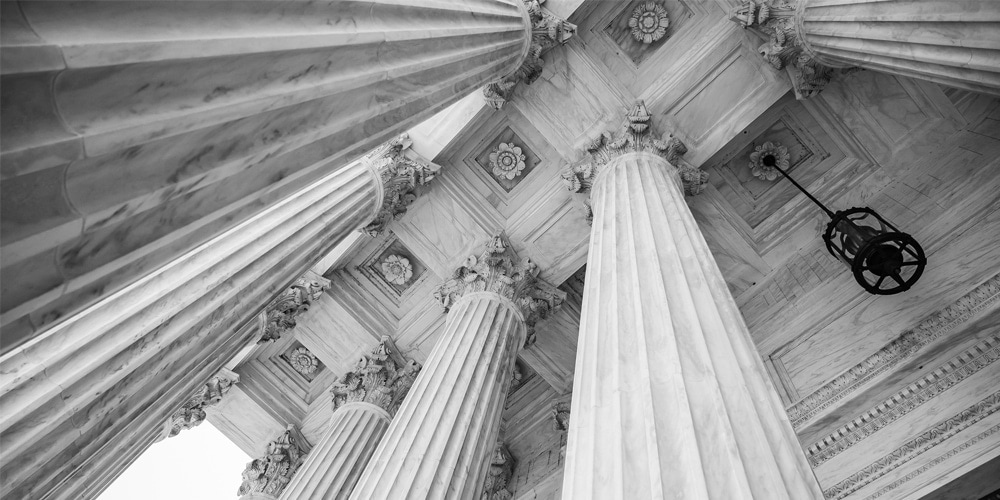
When she passed away on September 18, 2020, Ruth Bader Ginsburg, the second woman ever appointed to the United States Supreme Court, had become a cultural icon. Even her philosophical and judicial opponents acknowledged the breadth and impact of her contribution. During her 40 years on the bench (27 of them serving on the Supreme Court) and her time as a practicing attorney, Justice Ginsburg was a consistent advocate for, and protector of, equal rights for all under the 14th amendment. She is celebrated for her decades-long efforts to change the reality of discrimination against women in the United States.
In 1970, for example, in most states it was perfectly legal for an employer to fire a woman just because she was pregnant; it was legal for banks to require a woman to have her husband co-sign if she applied for credit; and employers were allowed to pay women a fraction of their male counterparts’ remuneration for doing the same work.
Gender discrimination was personal experience for Ginsburg from the beginning of her legal career. As one of a handful of women in a class of more than 500 students at Harvard Law School, she was questioned by the school’s administrators regarding why she, a female, deserved to be in school and take the slot of a deserving male. While they wondered why, Ginsburg balanced attending one of the top law schools in the country with being a wife, a new mom, and caretaker of her husband, who was battling cancer at the time. With all of these responsibilities, she nonetheless rose to the top of her class and was a member of the Harvard Law Review. During her third year, she transferred to Columbia Law School to be near her husband and his new job. Graduating at the top of her class, she was unable to find work at the major law firms — they simply did not hire women. Whether it was during her time as a practicing attorney or while on the bench, Ginsburg made it her life’s work to fight for fairness for all, regardless of gender, ethnicity, or social standing.
Two cases that represent the positive impact Justice Ginsburg had on advancing equality are the 1975 case of Weinberger v. Wiesenfeld and the 2007 case of Ledbetter v. Goodyear Tire & Rubber Co.
In Weinberger, Justice Ginsburg, at that time a practicing attorney, represented Stephen Wiesenfeld, a widower who was denied Social Security survivor benefits that were available only to widows who cared for their children, but not to widowers. She successfully argued before the Supreme Court that the law discriminated against men by denying them the same protection as women in the same situation, and simultaneously discriminated against women by not treating their contributions to Social Security the same as a man’s.
In the Ledbetter case, Lilly Ledbetter, an employee at a tire plant, filed an equal-pay lawsuit regarding pay discrimination under Title VII of the Civil Rights Act of 1964. At the time, she was making 40 percent less than her male coworkers for identical work. Though the Supreme Court ruled in a 5-4 decision that Ms. Ledbetter’s complaint was time-barred, Justice Ginsburg wrote a powerful dissent that would become part of her later fame, and which is credited as leading to the Lilly Ledbetter Fair Pay Act in 2009. That legislation makes it easier for employees to win unequal-pay claims against their employers.
Some will disagree with many of the late jurist’s positions. Many Seventh-day Adventists will strongly criticize the positions she took on the legal availability of abortion and the legalization of same-sex marriage as contrary to their understanding of Scripture. Justice Ginsburg also sometimes took positions not in line with viewpoints officially advocated by the Adventist Church regarding religious liberty. In Trinity Lutheran v. Comer she dissented in a case that held a church school could not be excluded from a program available to other private schools. In American Legion v. American Humanist Assn. she dissented in a case that allowed a cross honoring World War I veterans to remain on public land.
These points of disagreement, both substantial and theoretical, should not diminish the esteem in which this late warrior for justice is held. As a member of the legal profession, I owe Justice Ginsburg a debt of gratitude for the legacy she has left. I was not challenged by Harvard about attending their law school; I do not have to struggle to receive pay equal with my male counterparts.
Life’s blessings are not accidents. And Justice Ginsburg has opened the door that allowed me and many other Americans to enjoy even more of what America has promised. She will be missed.
Jennifer Woods is an associate in the Office of General Counsel at the General Conference of Seventh-day Adventists.